![]()
“Chi, prana, Holy Spirit and other terms for the Spirit are all salvific.”
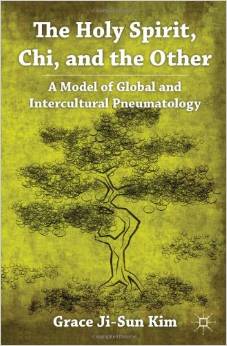
“Chi, prana, Holy Spirit and other terms for the Spirit are all salvific in that they can save us within ourselves and in relation to others. Chi embraces life and makes it whole. It will heal and bring life to what is broken. Therefore, it is essential that humanity recognize this Spirit and affirm it in their lives. Chi has an emancipatory element as it frees us from the bonds of oppression that prevent us from celebrating life. When humanity neglects or ignores the force of Chi, problems of animosity and oppression can arise.”
One Spirit or Many?
“Christians want a pneumatology that includes both transcendental and immanent dimensions of the Holy Spirit. God is not merely the 'Wholly Other' but also the 'God with us and in us.' At the beginning of the third millennium, Christians long to see, touch, and feel the presence of the Divine Spirit. Come, Holy Spirit! As Christians seek this, they come into dialogue with other religions that may have experienced Spirit in a similar fashion. Chi and other global understandings of the Spirit also express this Divine within us. Chi, prana, and ha are all versions of the life-giving Spirit and the essential element for all life to exist. If human beings can recognize this and accept this, we can all live in more harmony and peace with one another.
Chi will be a crucial element in how one does theology. It is found in all parts of the world by various ethnic groups and may be the binding element that will keep us from destroying ourselves, each other, and the planet. It is a Spirit that bonds and pulls humanity closer with all other living creatures. It will sustain us and keep us aware of our interconnectedness and interreliance. We need to turn to Chi and welcome its presence in our bodies and our lives so that we can be more aware of the Spirit.
Chi, prana, Holy Spirit and other terms for the Spirit are all salvific in that they can save us within ourselves and in relation to others. Chi embraces life and makes it whole. It will heal and bring life to what is broken. Therefore, it is essential that humanity recognize this Spirit and affirm it in their lives. Chi has an emancipatory element as it frees us from the bonds of oppression that prevent us from celebrating life. When humanity neglects or ignores the force of Chi, problems of animosity and oppression can arise.”
When Asian contextual theology encounters the Chi of Taoism and its spirituality, it expands the dimension of the Spirit. The understanding of the Spirit moves toward a cosmic-natural process of living organisms for the multireligious mystical experience of human life. Although the Spirit in Christianity is not equated with an immanent and impersonal force, Jesus does say, "The wind blows where it wishes and you hear the sound of it, but do not know where it comes from and where it is going. So it is with everyone born of the Spirit" (John 3: 8).
It is important to recognize the similarities between the Holy Spirit and other manifestations of the Spirit in our world. With this acceptance, it is then crucial to accept and welcome the Other who have different forms of expressing the same phenomena. In particular, the racialized immigrants who come to the West come here to begin a new life with many hopes and dreams. It is important not to make them the Other and have power and authority over them, but rather to embrace and empower each other. The power of Chi can help build bridges that have been torn down by ignorance and dominance. The destructive powers of separation can be overcome through Chi. Chi dwells in all things and within us. It has the power to make a positive difference in this world. Thus it is important to acknowledge that Chi is crucial for our livelihood and to realize that Chi is the Spirit in all things. This Spirit is the same Spirit of God. If God dwells within us, it makes a difference in how we live and treat others and nature.
There is much to learn from the many Eastern traditions and from one another. The Eastern traditions cannot be easily dismissed and ignored as their concept of Chi adds richness and new dimension to the Christian concept of God. In Christianity, there needs to be a stronger awareness of the Spirit within us. It is this Spirit that gives us life and maintains our life. In the West, we are so concerned with the physical being and the physical body that the Spirit does not come into the forefront. Rather we have largely adopted a "technical," even mechanical view of the body. We need to recognize the importance of the Spirit within our daily lives. In doing so, we may recognize the commonalities that exist between us and the Other. We will then be in a position to welcome and embrace one another. This is of crucial importance as we live in this global village where everything is becoming closer and more interconnected.
God within Us
We have encountered a God who also inhabits all created things. For Martin Luther, the creatures of God are not only human beings. God's creatures include "Water, air , the earth and all its products.” Likewise the creatures indwelled by God are not limited to the human. Luther insisted that God and Christ are actually present not only in human beings but in all created things. We are a dwelling place of Christ crucified, who lived and died for the sake of abundant life for all, and whose love for human beings could be stopped by nothing. God makes a home in matter for God's presence is felt within matter . The finite bears the infinite. As we awaken each morning, the great Lover and Liberator is alive in and among our bodies. The mystery of creation "Is the indwelling of God within it.” We creatures from the earth are home to One who breathes through creation, healing, making whole, undoing injustice, and restoring right relationships, so that all might have life and have it abundantly.
Chi reminds us of many things above or about the Divine. God and God's Spirit is always within us. This is what has given us life and sustains us throughout our life. We are the holy temples of God and this knowledge should make all the difference in how we treat ourselves, others, and nature. It is clearly evident that once we recognize that God is within us, we will treat ourselves , others, and nature with respect, love, and ultimate care. As we live in this ever-growing society of multinational corporations, imperialism , and colonialism, we need to take a deep breath and recognize these dangers and work toward justice and peace. This is ever crucial to us as we try to live on this planet and try to preserve it for the next generations.
Conclusion
As Christian theology works toward a new pneumatology, it is important to expand its concepts beyond the Western notions of the Spirit and embrace a global understanding of the Spirit. This will enable us to open up our previously conceived notions of the Spirit and embrace a more inclusive and holistic understanding. A global understanding of the Spirit will contribute to eliminating injustice and racism within society, open doors for interreligious dialogue, and make the world a better place for all who inhabit it. The global understanding of the Spirit as energy will renew us and bring us closer to the Divine. Ultimately, this Spirit is from God and we need to recognize its power and dimension. It will be the liberating element in our lives and the way to empowerment. All people need to recognize the strong powerful element of the Spirit and share this Spirit with others. This Spirit is the energy that is inside the fundamental building blocks of all living things. It is essentially what gives life and acknowledging this enables us to be aware of the Spirit within us. As people recognize the commonality of the Spirit with other religions, it will renew their hope in humanity and aid them in living with the Other, defined as those who are different culturally, ethnically, and religiously.
What we need is life, wholeness, and undivided love. Is this not the essence of the Gospel? God, the eternal, infinite God is so close to us that God loves us. 83 Isn't this the task of Chi? Chi is the giver and sustainer of life, much the same way that the Spirit is. The Spirit is found in major world religions and one must acknowledge this and learn from the other religious traditions and understandings of the Spirit. In order to expand our knowledge of the Spirit, we have to liberate the Spirit from a solely Christian perspective. We need to acknowledge the Spirit that is found in other religious and faith traditions and compare it to the Christian idea of the Spirit. Only in this way is the Spirit life-giving as it dismantles sexism, racism, prejudice, and Christian privilege.
As we see the various concepts of the Spirit around the world, we are challenged to embrace people who are different. Perhaps the differences between us are not as great as we first thought. There is common ground and we need to build upon this common ground. What does this mean for a global pneumatology? It implies a very inclusive understanding of the Spirit. The Spirit is found in different contexts, and this implies that the Spirit is present and embraced in various parts of the world. This means that there is one Spirit with many names. This has great implications for a pneumatology that transcends culture, tradition, and religion. It can be a binding pneumatology that breaks down barriers of racism, prejudice, and otherness. If the West can recognize the similarities rather than emphasize the differences, we can work toward a better world for all.
Ruach is the force behind all other forces, an essential element for all life to exist. If only human beings can recognize this and accept this, we can all live in more harmony and peace with one another. When humanity neglects or ignores this majestic force of ruach or Chi, animosity and oppression begins. Chi embraces life and makes it whole; therefore, it is essential that humanity recognizes this Spirit and affirms it in their lives. Thus Chi has an emancipatory element as it frees us from the bonds of evil that prevent us from celebrating life. Chi will keep us stronger and build bridges between humanity. This importance needs to be accentuated and emphasized if we want to continue living on this planet. Chi is salvific in that it saves us. It saves within us, between us, and among us. It is a Spirit that bonds and pulls humanity closer to all other living creatures. It will sustain us and keep us aware of our interconnectedness and interreliance. Without this Chi, we cannot survive as a human race.
Life has been an important concept for religiosity in new movements for the last decades. It indicates the idea to transpose meaning that was traditionally found in the transcendent and transempirical into this world and into the undiscovered depth dimensions of life. Chi will be the crucial element in how one does theology. It is found in all parts of the world by various ethnic groups. This is the binding element that will keep us from destroying ourselves, each other, and the planet. We need to turn to Chi and invite Chi into our bodies, our lives, and all living things.”
Kim, Grace Ji-Sun (2011-09-20). The Holy Spirit, Chi, and the Other (pp. 29-34). Palgrave Macmillan Monographs. Kindle Edition.
Amazon Product Review
"Are there correlations between the Holy Spirit of the Christian tradition and the Chi of the Asian traditions? In tackling this huge and complex question Kim boldly and provocatively opens up whole new vistas on pneumatology and shows that in our global age theology can no longer be done from just one, up to now Eurocentric and androcentric, perspective. We are all in Kim's debt for this enlightening and enriching theological adventure.” - Peter C. Phan, The Ignacio Ellacuria Chair of Catholic Social Thought, Theology Department, Georgetown University
"Any pluralist Christian may draw energy and insight from Kim's comparative theology of Chi. She offers a spirited strategy, always clear and hopeful, for at once decolonizing our old exclusivism and empowering a fresh and healing planetary cooperation.” - Catherine Keller, Professor of Constructive Theology, Drew Theological School; author of On the Mystery: Discerning Divinity in Process
"The Holy Spirit, Chi, and the Other is well researched, theologically creative, interdisciplinary, and cross-cultural. The book is rich in both content and meaning. Kim's sophisticated treatment of the Spirit is a welcome addition to the growing literature on Global Theology. This book will be extremely useful for students and scholars in religious studies, theology, and cultural studies. It is a telling testimony to Kim's intellectual vitality, fine scholarship, and daring originality.” - Akintunde E. Akinade, Visiting Professor of Theology, Georgetown School of Foreign Service, Doha, Qatar
"It is in taking just such a wide angle view of its subject, and doing it with considerable attention to detail, that The Holy Spirit, Chi, and the Other maps out a rich landscape for further exploration. It will be an excellent resource for students and teachers, and a very helpful point of departure for scholars in theology, religious studies, and social and cultural criticism.” - Stephen Simmons, Moravian Theological Seminary
"Whether one agrees ultimately with Kim, The Holy Spirit, Chi, and the Other does the hard work of bringing Christian theology into dialogue with Eastern traditions. In an increasingly shrinking global village, Christians can no longer avoid doing theology only with Western resources. Kim provides one model of how this essential work is to be done. May many others take up this important task.” - Amos Yong, J. Rodman Williams Professor of Theology, Regent University School of Divinity
"I highly recommend Kim's work as a fine piece of the kind of contextual theology we very much need today in the area of the Holy Spirit and Chi, given the widespread awareness and culture of Chi in so many parts of the world, especially in East Asia. She should be complimented on a very promising pioneering work.” - Anselm K. Min, Dean and John D. and Lilian Maguire Distinguished Professor of Religion, The School of Religion, Claremont Graduate University
Most helpful customer reviews on Amazon.com
New Look at Enriching our Idea of the Holy Spirit.
By B. Maroldon October 11, 2011 - Published on Amazon.com
“Dr. Kim's book addresses the post-colonial dialectic between the center versus the marginal, the coming together versus the preservation of identity, and what insights that Eastern understandings of Chi (wind, breath) can offer to our often neglected third of the Trinity, the Holy Spirit. Feminist and other contextualist theologies devalue the un-knowable, transcendental aspects of Christian philosophy, inherited from Plato, and sustained up until Kant's critique. They also abhor the negation of self found in Kenosis. To preserve the self and celebrate the praxis required by the conditions in which we find ourselves, Dr. Kim raises the banner of the ancient disciplines of China, India, Japan, and Korea in understanding that way in which the spirit acts on and with us. The Christian scriptures say much about the healing power of the spirit, yet they say not one jot or tittle regarding how it is that happens, possibly due to the scripture's devaluing the physical, the "flesh". Eastern thought never makes that separation, so it devotes deep thought to Chi as a vital spirit, and thousands of years of praxis on physical disciplines treating the "whole person" such as acupuncture and Tai Chi.
Please note: I am a student of Dr. Kim, and I assisted to some extent in helping to edit this book.”
boundary crossing book
By farinelon December 14, 2012 - Published on Amazon.com
“Dr.Kim sets the agenda for the coming century of theological research by boldly urging that reflection and catechisis draw on the "hybridity" characteristic of today's world. She challenges the legacy of an attenuated and vapid platonism within christian tradition, with its implied denegration of the body. As a leader of adult education classes in a very multicutural parish, i find her concepts refreshing and liberating. As a deep reader of Calvin, i am delighted that dr. Kim, an ordained minister in the Presbyterian church, shares Calvin's belief that we cannot know who is "saved"; she suggests with Pannikar that revelation is complex and infinite, not bound to western categories of thought , and always opening us to freedom and newness. In that sense she breaks new ground, as Amos Yong has done, in the emerging and exciting field of pneumatology.”
An Accessible Pneumatology
By J Choon April 17, 2012 - Published on Amazon.com
“Dr. Kim does a comprehensive work in presenting the multi-layerd connections between Holy Spirit and Chi. it's highly technical, but still accessible and compelling. Her incorporation of an Eastern notion of "spirit" thickens and deepens the Christian theological understanding of Holy Spirit in practical ways. These days when so many cultures and religions are interfacing on a regular basis it is refreshing to have a resource that does so honestly, articulately, and courageously. There's no loss of authenticity or faithfulness to Christian faith here, nor any inkling of dilution, which is often a concern for those who criticize inter-religious dialogue. This is the age of the Holy Spirit, and engaging and allowing ourselves to be open to the work of the Holy Spirit is crucial for the sake of God's Kingdom.”
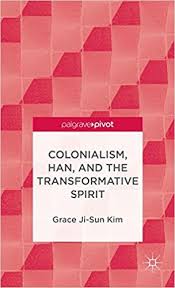
“Paul portrays a Spirit-Christology and Jesus is understood to be raised to new life by the Spirit (Rom. 1:4). The Spirit is the Spirit of Christ (Rom. 8:9; Gal. 4:6; Phil. 1:19) and it is through the Spirit that the believer is able to confess that 'Jesus is Lord' (1. Cor. 12:1-3). Therefore, to be 'in Christ' and 'in the Spirit' are the same. Just as God and Spirit are the same, the Spirit cannot be experienced apart from Christ (1 Cor. 12:3). Christ is portrayed as 'a life giving Spirit' (1 Cor. 15:45) and the Spirit works to give illumination and divine revelation in the face of affliction (1 Thess. 1:6; 1 Cor. 2:10-12; 2 Cor. 3:14-17). As a result, the believer has a responsibility to live her life in the power of the Spirit (Rom. 8:4-6, 14; Gal. 5:16, 18, 25). This responsibility should not be taken lightly as one should not ignore the depth of the Spirit's power. Walking in the power of the Spirit is life-changing as the Spirit becomes an agent through which changes and transformation can occur.
Johannine pneumatology (from the Greek, pneuma, meaning breath, comparable to the Hebrew word for spirit) shows the Spirit's life-giving power of water and breath: rebirth (John 3:5-8), spring of life (John 4:14; 6:63; 7:38-39), and new creation (John 20:22; cf. Gen. 2:7; Ezek. 37:9). The Johannine Epistles speak of anointing (1 John 2:20, 27) and Jesus has been given the Spirit (John 3:34). The Spirit is named 'other Paraclete' (14:16) which implies that Jesus is the first (1 John 2:1). The term parakletos (from para+kalein) means 'one called alongside to help' and thus is an advocate or witness (John 14:26). The Spirit becomes a source of inspiration and vision as people feel the presence of the Spirit around them. The Spirit also becomes an indispensable aspect of living ass it becomes an advocate for us to help us live a life of good stewardship.”
Colonialism, Han, and the Transformative Spirit
Grace Ji-Sun Kim, Palgrave Pivot (April 18, 2013) p. 73
Apokalypsis: The fulfillment of eschatological instruction by the Paraclete in the Age to Come promised by Jesus at the Last Supper
“The original meaning of the word ‘apocalypse’, derived from the Greek apokalypsis, is in fact not the cataclysmic end of the world, but an ‘unveiling’, or ‘revelation’, a means whereby one gains insight into the present.” (Kovacs, 2013, 2)
An apocalypse (Greek: apokalypsis meaning “an uncovering”) is in religious contexts knowledge or revelation, a disclosure of something hidden, “a vision of heavenly secrets that can make sense of earthly realities.” (Ehrman 2014, 59)
“An apocalypse (Ancient Greek: apokalypsis ... literally meaning "an uncovering") is a disclosure or revelation of great knowledge. In religious and occult concepts, an apocalypse usually discloses something very important that was hidden or provides what Bart Ehrman has termed, "A vision of heavenly secrets that can make sense of earthly realities". Historically, the term has a heavy religious connotation as commonly seen in the prophetic revelations of eschatology obtained through dreams or spiritual visions.” Wikipedia 2021-01-09
An apocalypse (Greek: apokalypsis meaning “an uncovering”) is in religious contexts knowledge or revelation, a disclosure of something hidden, “a vision of heavenly secrets that can make sense of earthly realities.” (Ehrman 2014, 59)
“An apocalypse (Ancient Greek: apokalypsis ... literally meaning "an uncovering") is a disclosure or revelation of great knowledge. In religious and occult concepts, an apocalypse usually discloses something very important that was hidden or provides what Bart Ehrman has termed, "A vision of heavenly secrets that can make sense of earthly realities". Historically, the term has a heavy religious connotation as commonly seen in the prophetic revelations of eschatology obtained through dreams or spiritual visions.” Wikipedia 2021-01-09
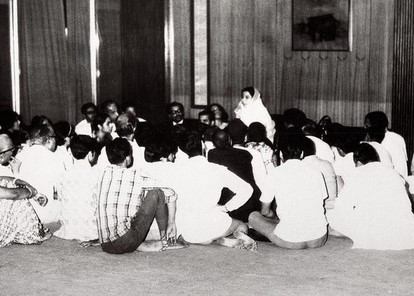
Shri Mataji Nirmala Devi (1923-2011) was Christian by birth, Hindu by marriage, and Paraclete by duty.
Total number of recorded talks 3058: Public Programs 1178, Pujas 651, and other (private conversations) 1249
“The Paraclete will come (15:26; 16:7, 8, 13) as Jesus has come into the world (5:43; 16:28; 18:37)... The Paraclete will take the things of Christ (the things that are mine, ek tou emou) and declare them (16:14-15). Bishop Fison describes the humility of the Spirit, 'The true Holy Spirit of God does not advertise Herself: She effaces Herself and advertises Jesus.' ...
It is by the outgoing activity of the Spirit that the divine life communicates itself in and to the creation. The Spirit is God-in-relations. The Paraclete is the divine self-expression which will be and abide with you, and be in you (14:16-17). The Spirit's work is described in terms of utterance: teach you, didasko (14:26), remind you, hypomimnesko (14:26), testify, martyro (15:26), prove wrong, elencho (16:8), guide into truth, hodego (16:13), speak, laleo (16:13, twice), declare, anangello (16:13, 14, 15). The johannine terms describe verbal actions which intend a response in others who will receive (lambano), see (theoreo), or know (ginosko) the Spirit. Such speech-terms link the Spirit with the divine Word. The Spirit's initiatives imply God's personal engagement with humanity. The Spirit comes to be with others; the teaching Spirit implies a community of learners; forgetful persons need a prompter to remind them; one testifies expecting heed to be paid; one speaks and declares in order to be heard. The articulate Spirit is the correlative of the listening, Spirit-informed community.
The final Paraclete passage closes with a threefold repetition of the verb she will declare (anangello), 16:13-15. The Spirit will declare the things that are to come (v.13), and she will declare what is Christ's (vv. 14, 15). The things of Christ are a message that must be heralded...
The intention of the Spirit of truth is the restoration of an alienated, deceived humanity... The teaching role of the Paraclete tends to be remembered as a major emphasis of the Farewell Discourses, yet only 14:26 says She will teach you all things. (Teaching is, however, implied when 16:13-15 says that the Spirit will guide you into all truth, and will speak and declare.) Franz Mussner remarks that the word used in 14:26, didaskein, "means literally 'teach, instruct,' but in John it nearly always means to reveal.” (Stevick 2011, 292-7)
The Holy Spirit as feminine: Early Christian testimonies and their interpretation,
Johannes van Oort, Radboud University, Nijmegen, The Netherlands
Department of Church History and Church Polity, Faculty of Theology, University of Pretoria, South Africa
Total number of recorded talks 3058: Public Programs 1178, Pujas 651, and other (private conversations) 1249
“The Paraclete will come (15:26; 16:7, 8, 13) as Jesus has come into the world (5:43; 16:28; 18:37)... The Paraclete will take the things of Christ (the things that are mine, ek tou emou) and declare them (16:14-15). Bishop Fison describes the humility of the Spirit, 'The true Holy Spirit of God does not advertise Herself: She effaces Herself and advertises Jesus.' ...
It is by the outgoing activity of the Spirit that the divine life communicates itself in and to the creation. The Spirit is God-in-relations. The Paraclete is the divine self-expression which will be and abide with you, and be in you (14:16-17). The Spirit's work is described in terms of utterance: teach you, didasko (14:26), remind you, hypomimnesko (14:26), testify, martyro (15:26), prove wrong, elencho (16:8), guide into truth, hodego (16:13), speak, laleo (16:13, twice), declare, anangello (16:13, 14, 15). The johannine terms describe verbal actions which intend a response in others who will receive (lambano), see (theoreo), or know (ginosko) the Spirit. Such speech-terms link the Spirit with the divine Word. The Spirit's initiatives imply God's personal engagement with humanity. The Spirit comes to be with others; the teaching Spirit implies a community of learners; forgetful persons need a prompter to remind them; one testifies expecting heed to be paid; one speaks and declares in order to be heard. The articulate Spirit is the correlative of the listening, Spirit-informed community.
The final Paraclete passage closes with a threefold repetition of the verb she will declare (anangello), 16:13-15. The Spirit will declare the things that are to come (v.13), and she will declare what is Christ's (vv. 14, 15). The things of Christ are a message that must be heralded...
The intention of the Spirit of truth is the restoration of an alienated, deceived humanity... The teaching role of the Paraclete tends to be remembered as a major emphasis of the Farewell Discourses, yet only 14:26 says She will teach you all things. (Teaching is, however, implied when 16:13-15 says that the Spirit will guide you into all truth, and will speak and declare.) Franz Mussner remarks that the word used in 14:26, didaskein, "means literally 'teach, instruct,' but in John it nearly always means to reveal.” (Stevick 2011, 292-7)
The Holy Spirit as feminine: Early Christian testimonies and their interpretation,
Johannes van Oort, Radboud University, Nijmegen, The Netherlands
Department of Church History and Church Polity, Faculty of Theology, University of Pretoria, South Africa
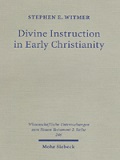
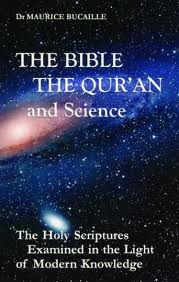
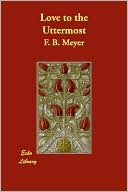
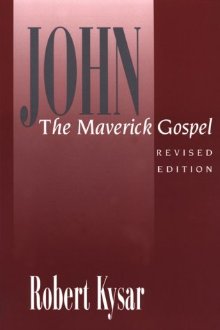
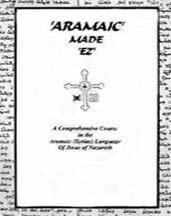
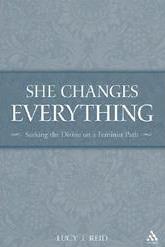
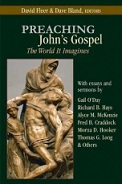
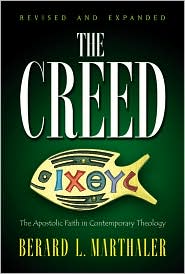
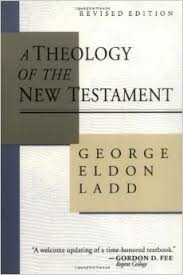
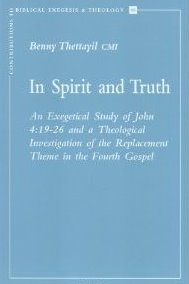

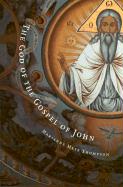
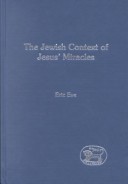
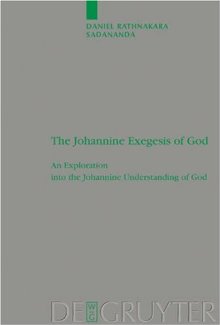

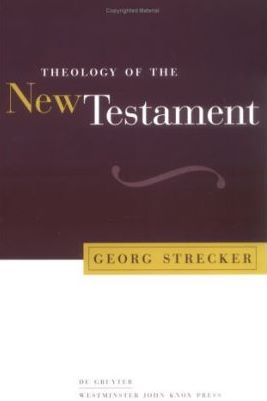
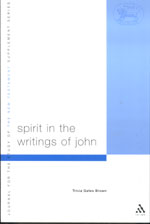
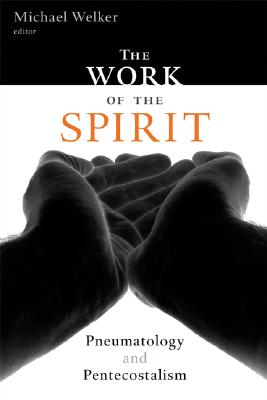
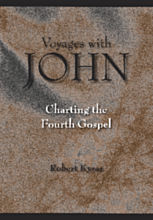
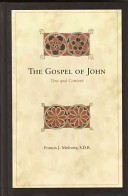
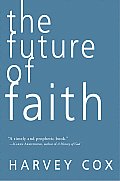
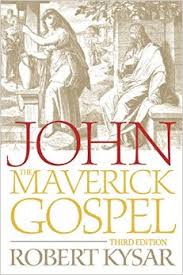
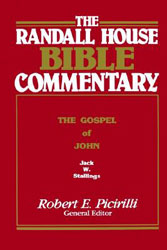
 “The teaching of the Paraclete, as the continuation of Jesus' teaching, must also be understood as the fulfillment of the promise of eschatological divine instruction.”
“The teaching of the Paraclete, as the continuation of Jesus' teaching, must also be understood as the fulfillment of the promise of eschatological divine instruction.”Stephen E. Witmer, Divine instruction in Early Christianity
“Jesus therefore predicts that God will later send a human being to Earth to take up the role defined by John .i.e. to be a prophet who hears God's words and repeats his message to man.”
M. Bucaille, The Bible, the Qur'n, and Science
“And when Jesus foreannounced another Comforter, He must have intended a Person as distinct and helpful as He had been.”
F. B. Meyer, Love to the Utmost
“The Paraclete has a twofold function: to communicate Christ to believers and, to put the world on trial.”
Robert Kysar, John The Meverick Gospel
“But She—the Spirit, the Paraclete...—will teach you everything.”
Danny Mahar, Aramaic Made EZ)
“Grammatical nonsense but evidence of the theological desire to defeminize the Divine.”
Lucy Reid, She Changes Everything
“The functions of the Paraclete spelled out in verses 13-15... are all acts of open and bold speaking in the highest degree.”
David Fleer, Preaching John's Gospel
“The reaction of the world to the Paraclete will be much the same as the world's reaction was to Jesus.”
Berard L. Marthaler, The Creed: The Apostolic Faith in Contemporary Theology
Bultmann calls the “coming of the Redeemer an 'eschatological event,' 'the turning-point of the ages.”
G. Ladd, A Theology of the New Testament
“The Paraclete equated with the Holy Spirit, is the only mediator of the word of the exalted Christ.”
Benny Thettayil, In Spirit and Truth
“The divine Paraclete, and no lessor agency, must show the world how wrong it was about him who was in the right.”
Daniel B. Stevick , Jesus and His Own: A Commentary on John 13-17
Stephen Smalley asserts that “The Spirit-Paraclete ... in John's Gospel is understood as personal, indeed, as a person.”
Marianne Thompson, The God of the Gospel of John
“The Messiah will come and the great age of salvation will dawn (for the pious).”
Eric Eve, The Jewish context of Jesus' Miracles
“The remembrance is to relive and re-enact the Christ event, to bring about new eschatological decision in time and space.”
Daniel Rathnakara Sadananda, The Johannine Exegesis of God
“The Spirit acts in such an international situation as the revealer of 'judgment' on the powers that rule the world.”
Michael Welker, God the Spirit
The Paraclete's “Appearance means that sin, righteousness, and judgment will be revealed.”
Georg Strecker, Theology of the New Testament
“While the Spirit-Paraclete is the true broker, the brokers they rely on are impostors.”
T. G. Brown, Spirit in the writings of John
“The pneumatological activity ... of the Paraclete ... may most helpfully be considered in terms of the salvific working of the hidden Spirit.”
Michael Welker, The work of the Spirit
“The pneuma is the peculiar power by which the word becomes the words of eternal life.”
Robert Kysar, Voyages with John
“The gift of peace, therefore, is intimately associated with the gift of the Spirit-Paraclete.”
Francis J. Moloney, The Gospel of John
“This utopian hope, even when modestly expressed, links Jesus and the prophets to a much wider history of human longing.”
Harvey Cox, The Future of Faith
“Because of the presence of the Paraclete in the life of the believer, the blessings of the end-times—the eschaton—are already present.”
Robert Kysar, John
“They are going, by the Holy Spirit's power, to be part of the greatest miracle of all, bringing men to salvation.”
R. Picirilli, The Randall House Bible Commentary
“The Kingdom of God stands as a comprehensive term for all that the messianic salvation included... is something to be sought here and now (Mt. 6:33) and to be received as children receive a gift (Mk. 10:15 = Lk. 18:16-17).”
G. Ladd, A Theology of the New Testament
Disclaimer: Our material may be copied, printed and distributed by referring to this site. This site also contains copyrighted material the use of which has not always been specifically authorized by the copyright owner. We are making such material available to our readers under the education and research provisions of "fair use" in an effort to advance freedom of inquiry for a better understanding of religious, spiritual and inter-faith issues. The material on this site is distributed without profit. If you wish to use copyrighted material for purposes other than “fair use” you must request permission from the copyright owner.